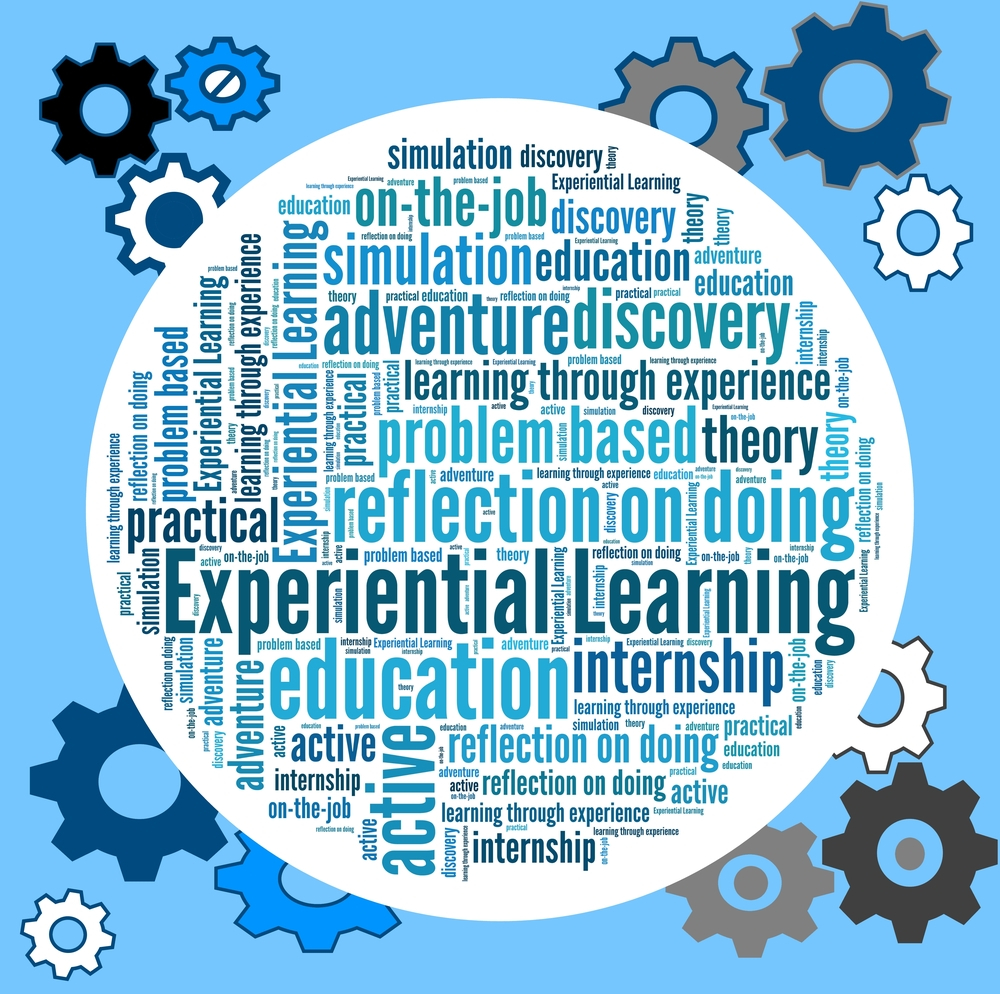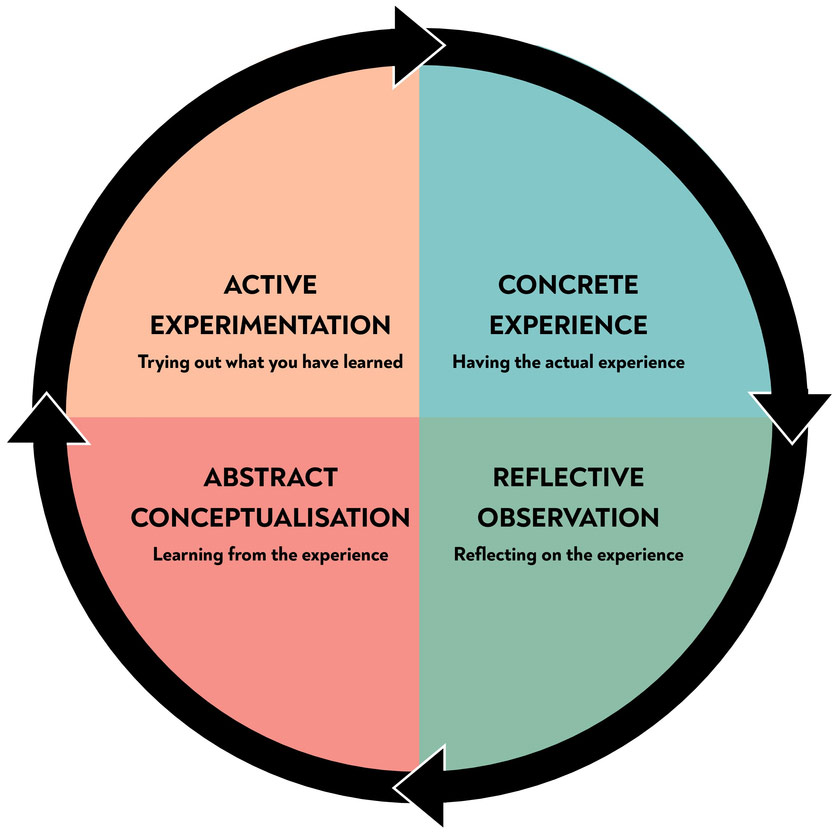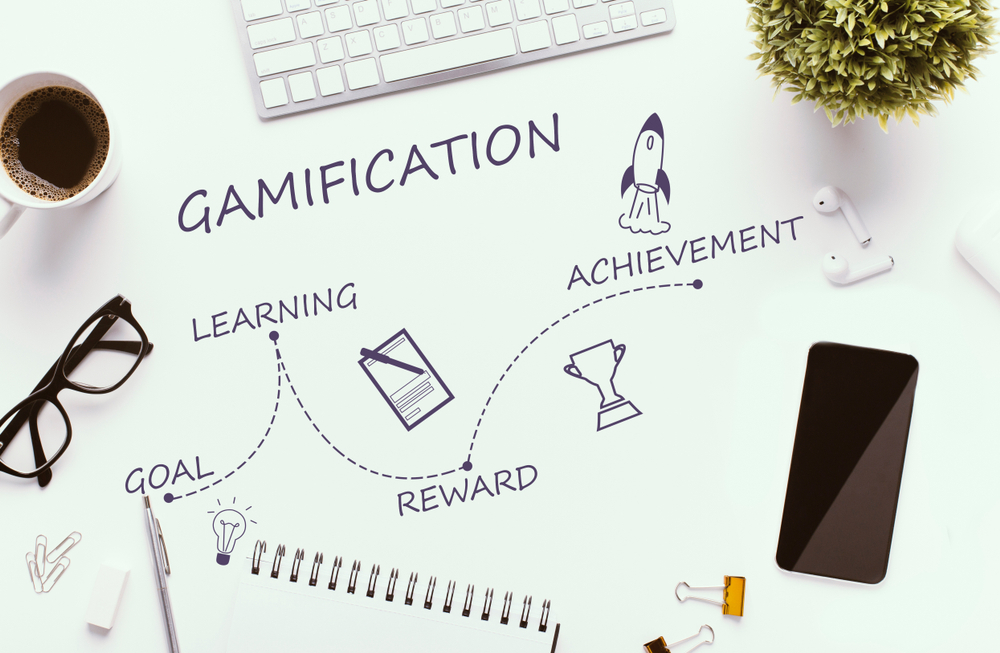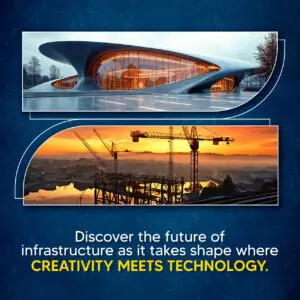
It is safe to say that hands-on experience has become a vital prerequisite to getting a job in your desired career choice. With growing globalization and more technologies developed daily, new skill sets are required for different job profiles. Attaining these new skills cannot be achieved through books alone.
Engineering universities have recently adopted experiential learning to develop soft skills and prepare students for the real world. Going beyond textbooks and classrooms and experimenting with their knowledge helps the students solve problems in real time. Even if a student has zero practical expertise in their fields, colleges have embraced ways to prepare students and help them gain new experience.

David Kolb’s theory of experiential learning:
David Allen Kolb is an American educational theorist who says that knowledge is created by transforming experience in real life. (1) His theory named – Kolb’s theory of experiential learning is often referred to when applying the technique into use. (2) It is divided into four parts:
- Concrete Experience: This is the first step, which emphasizes gaining new experience or working on existing one to gain new knowledge.
- Reflective Observation: The students reflect on the task and the experience and communication their understanding of the same.
- Abstract conceptualization: It refers to using analytical skills in abstract situations to conceptualize and solve different problems in life to gain experience.
- Active experimentation: The person should be able to apply the knowledge from experience gained, which require cognitive abilities such as problem-solving and decision-making skills.
This circular model is a never-ending process of gaining new experience and applying it in real-life scenarios.

The recent technique of gaming developed in experimental learning:
Learning through gaming is one common way of experiential learning and keeping the students more engaged. It has been suggested that events or activities that require collaboration and team-building help studies build a more comprehensive way of thinking, leadership and teamwork skills. (3)
Aside from engaging the students, the aim of gamification of learning, as popularly known, is to make the learning process more fun and motivate students to keep playing, hence keep learning. Ultimately, learning different aspects of working with a team and used the subjective experience gained in real life. (3)
Experimental learning is more open-ended in problem-solving and science than the traditional, which does not inspire creativity. (3)
Gaming covers all the points given by Kolb. People gain new experiences, or by using pre-existing knowledge of a solving problem, one tries to use the same on current and future issues.
Kolb’s theory can be used in various other ways for a holistic approach towards education.

Advantages of experiential learning:
As established above, experiential learning is an everlasting process aiding students to gain new knowledge required to sustain themselves in this fast-paced world. Further, it gives them a sense of responsibility and critically assess their mistakes. Failing through this process is again an experience!
Adopting innovative techniques, we try to do the same and make education more experience-oriented and fun. It helps each student have a unique ability to work in the competitive world, setting them apart from the competition.
Bringing Innovation in the Education:
Since its inception in 2010, the NAAC-accredited and MAKAUT-affiliated OmDayal Group of Institutions has emerged as one of the leading architecture colleges in West Bengal. We are reputed for continuously innovating its teaching and learning curriculum to provide global standards to each student. We instil our students with a competitive edge as new-age technology professionals.
Strong management, experienced faculty and a robust learning environment are other hallmarks responsible for the spectacular success enjoyed by our institute. We also offer flexible timings and partner with National Small Industries Corporation (NSIC) to provide on-job training and excellent placement opportunities for our students.
References:




